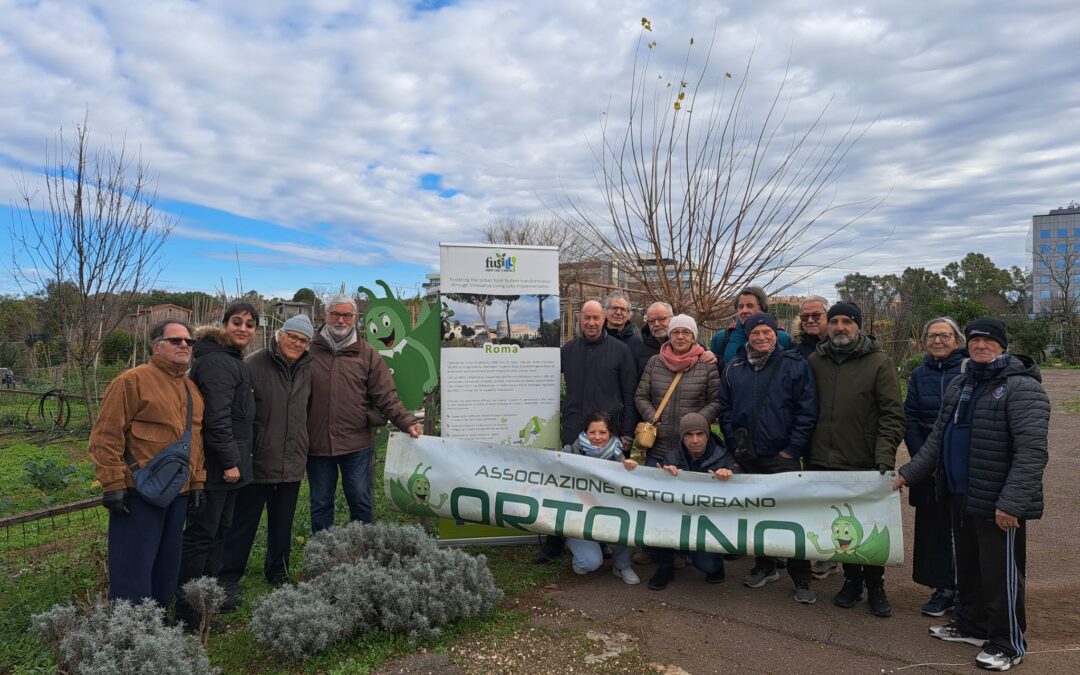Don’t say “I know Rome” if you haven’t taken a tour of the eternal city’s Urban Community Gardens (UCG), especially the 20 community gardens created on public land granted by the Municipality of Rome. Beyond the mandatory tour stops that millions of tourists visit in Rome every day, a “hidden Rome” is sprouting for true lovers of greenery, sociality, inclusion, health, and do-it-yourself organic agriculture. Here hundreds (yes, hundreds) of citizens cultivate their shared green spaces, holding up the flag of Rome as the first agricultural municipality in Europe. Plots of land of various sizes, on unused and often public soil, over the past 15 years have become a place of community resilience, an agricultural training ground for non-experts, and living laboratories for good environmental practices.
In the spirit of sharing different agro-urban experiences, the Vivere In APS association, as a local partner of the Rome Living Lab, organized eight visits in January and February 2024 to various Urban Community Gardens on public land: in Ortolino, Tor Carbone, Valle dei Casali, Tre Fontane, Zolle Urbane, Largo Veratti, Garbatella and Valle Aniene.
Exploring Rome’s urban gardens with Vivere in APS
The eight open-door appointments on eight different weekends provided opportunity for friends, relatives, children, residents and non-residents and curious citizens to explore Rome’s hidden oasis. Some involved lots of wind and rain, but it was nevertheless hailed by gardeners as an aid to self-managed irrigation and as a promise of a satisfactory harvest. The tour gained a place within the events of the National day of energy saving and sustainable lifestyles promoted and broadcasted yearly by National TV Channel RAI2 since 2005, established by law by the Parliament in 2022, and participated, this year, by 12 million Italians.
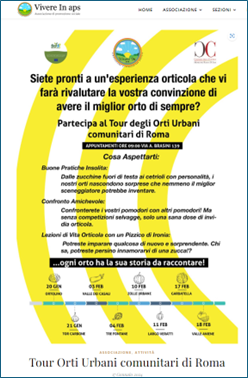

Being the latest arrival into the FUSILLI Risorse per Roma S.p.A. team, I didn’t have to be told twice: after all, I see the Colosseum every day on my way to work… but a “real urban community garden” – I almost didn’t know what it was! My first stop was at Valle dei Casali (south-east), where I was welcomed by a magnificent sunny day and a mimosa with a great desire to blossom (see picture). There I met Filippo from Vivere In APS, the “President” of the UCG and many other friends, experts or amateurs in urban agriculture community.
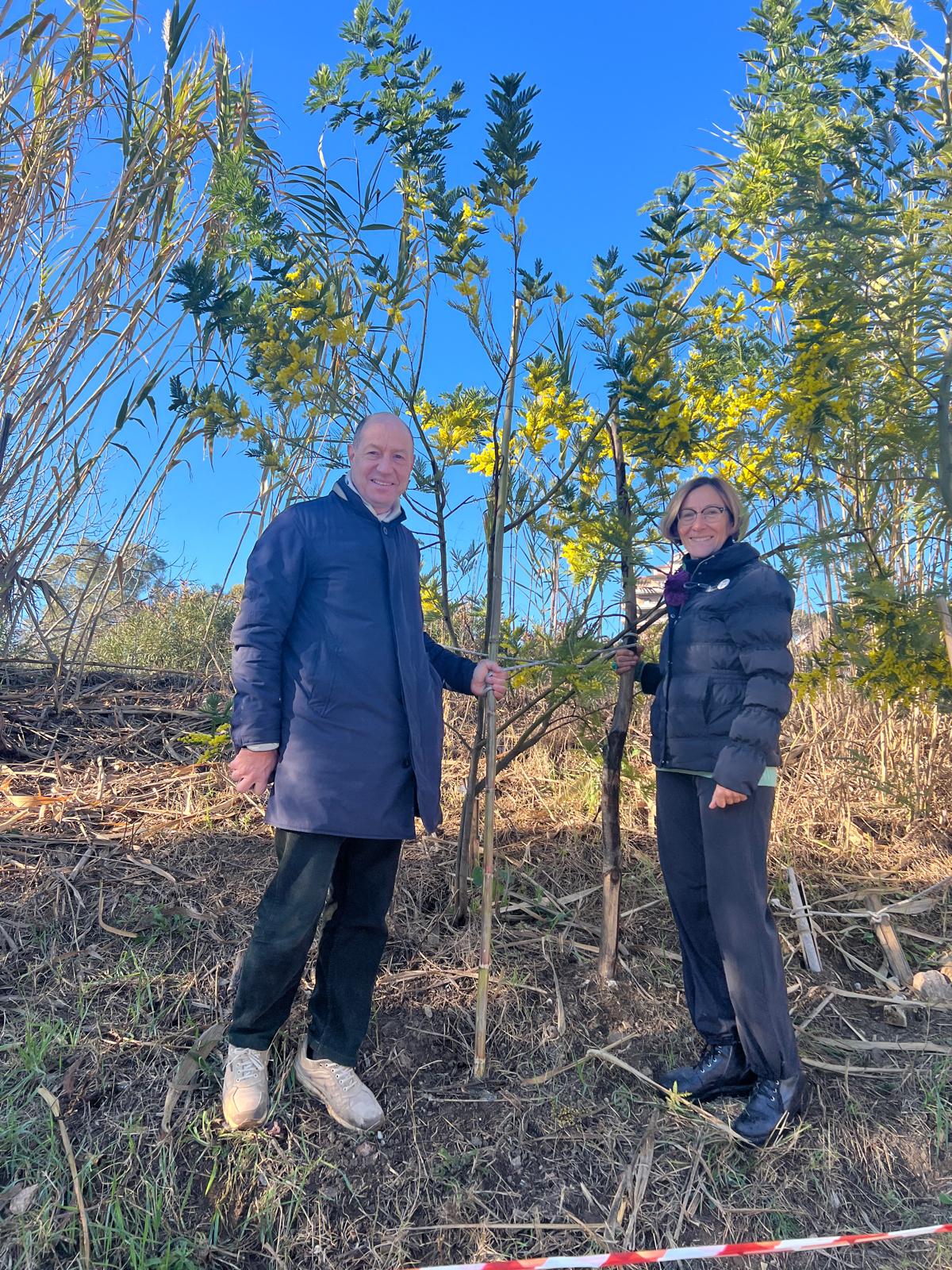

A sustainable haven amidst the urban jungle
Having left the crazy traffic of the city behind me, I plunged early in the morning in the rarefied atmosphere of the valley, among 120 self-managed crops including many cereals and even a small cotton plantation. On the board of scheduled activities: scheduled visits of the young pupils from elementary and middle schools who come to learn the techniques of sustainable cultivation; women meeting on March 8th; the presentation of a book by a Roman poet on the “virtues of the garden” and much more.
A greenhouse houses a seedbed with dozens of varieties of seeds, donated by supportive research associations and projects, such as the INCREASE + FUSILLI Citizen Science Experiment. A little further on, a patio offers shelter in case of rain or burning sun: a meeting place for members and friends of the UCG, sometimes even with representatives of local politics. So intense are the activities going on in each of the Urban Community Gardens of Rome.
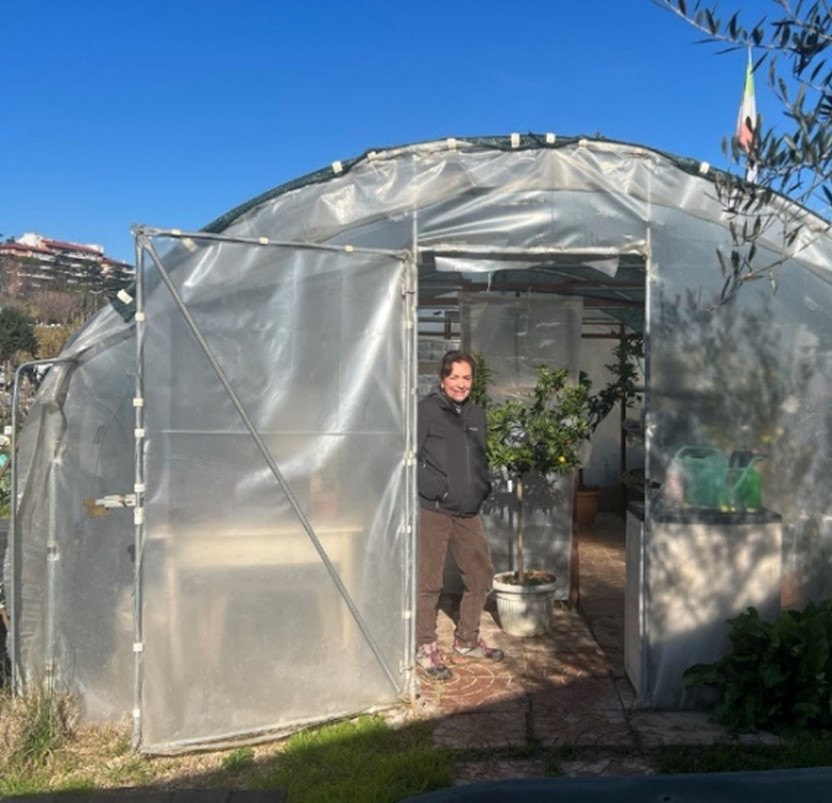
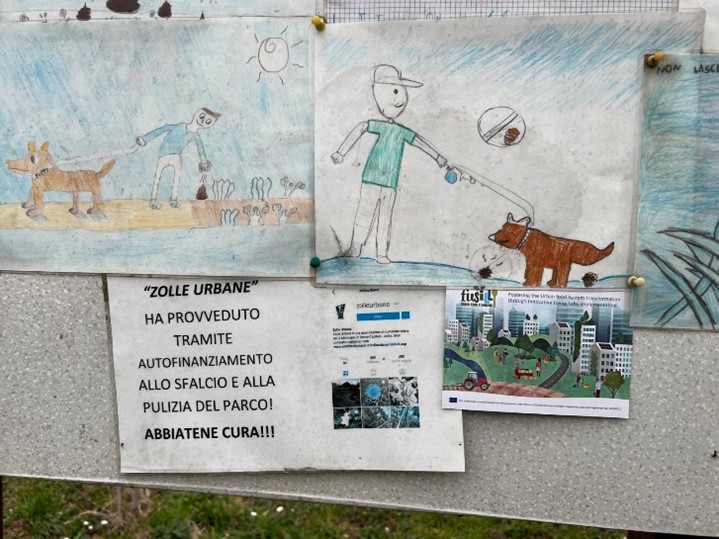
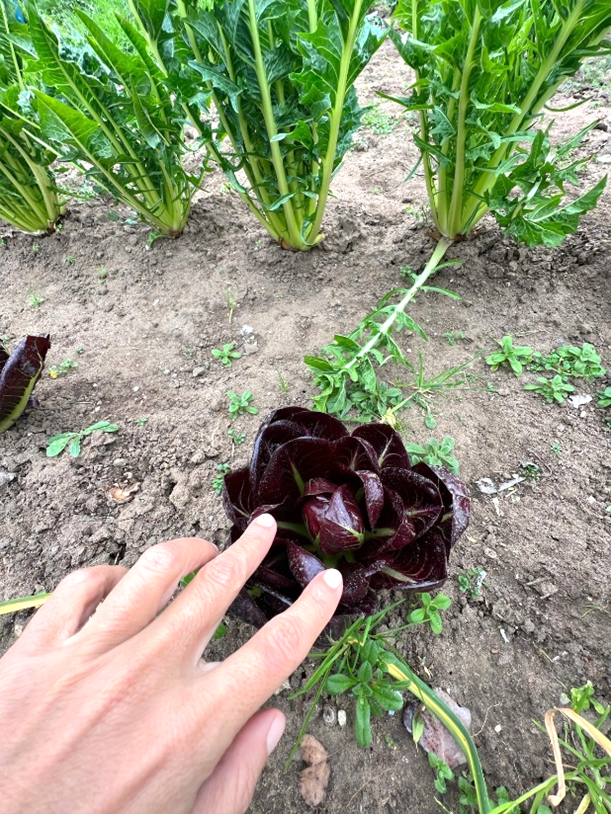
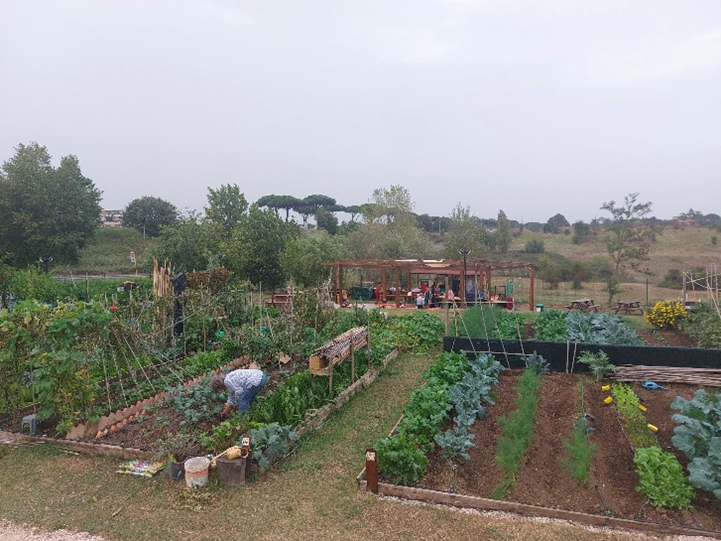
Building Bridges with the Community
The dialogue with the administrative institutions is open and continuous, even if the language is not exactly the same: many proposals have arisen from urban gardens to rethink food and environment policies and the most sensitive politicians try to respond as best they can. With small things: for example, an agenda that commits the Borough Council (Rome is administratively divided in 15 Boroughs) to improve the lighting of an isolated urban garden. But also with the most significant ones: such as the Food Council, an inclusive participation body, and the dedicated office in support of the Food Council, both born thanks to the Roma FUSILLI Living Lab. The civil society, institutional subjects, stakeholders and associations are called upon to develop Rome’s Food Plan: to outline the food policy of the city of Rome for the coming years, connecting basic experiences such as urban community gardens with global policies such as the 2030 Agenda. Always through innovation and community empowerment.
As small cells of a larger systemic change, UCGs are already a revolution. They bring citizens closer to nature, encouraging the sharing of interests and attention to the use of resources. They teach solidarity and how to use the territory responsibly. As Roman gardeners know well, urban gardens stimulate outdoor activities, allow Km0 self-production and, last but not least, includes people in need and mitigates the social stress due to the urbanized environment, contributing to one’s holistic well-being. Horticulture also gives the opportunity to team-building, to socialize and discuss, offering useful support also in the field of social hardship, in the therapeutic and educational fields while respecting the environment and common resources, water first and foremost.
Background on Rome's community gardens
The cultivation of a community garden requires compliance with some simple rules and the application of organic farming methods as required by the Urban Garden Regulations of the Municipality of Rome. It is there to remind everyone that “where there is a will, there is a way”. Approved in 2015 after a strong bottom-up advocacy from active citizens supported by Risorse per Roma Spa and eu SidigMed funds, it gained the City an URBACT award in 2017 and has already been taken as an example by 10 European cities through Rome’s leading in RU:RBAN and RU:RBAN Second Wave projects.
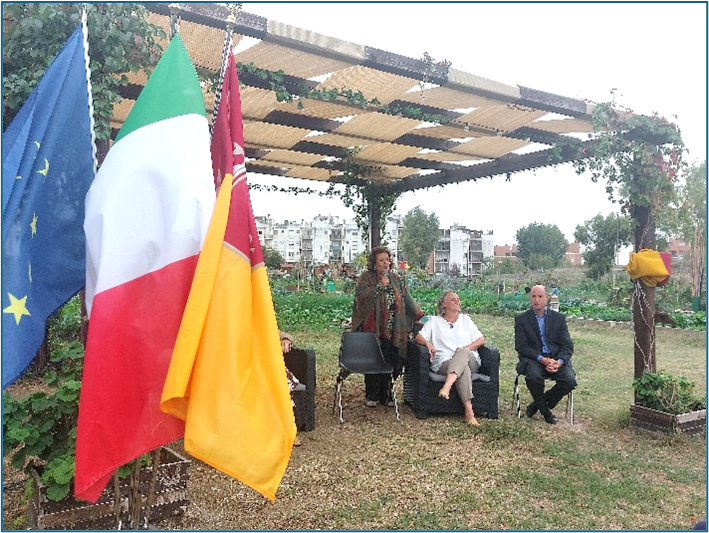
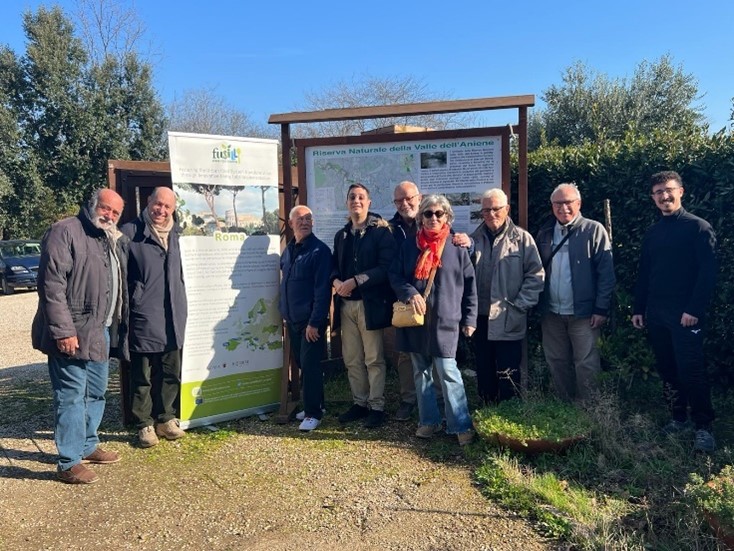
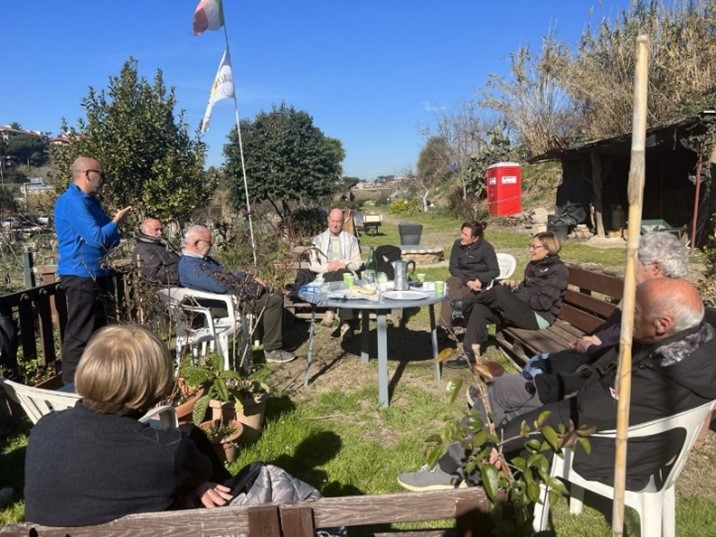

There is still a long way to go, but the momentum is undeniable: with the New Regulation for Roman UCGs (discussed within the FUSILLI process in 2022-2023), to be approved by the City on May 25th and the ongoing development of the Food Plan, Rome is paving the way for many of the Agenda 2030 goals yet to come! So if you’re planning a weekend in Rome and want to see something different… consider a tour of Rome’s urban gardens. Maybe not all roads lead to Rome, but the green revolution passes through here for sure!
